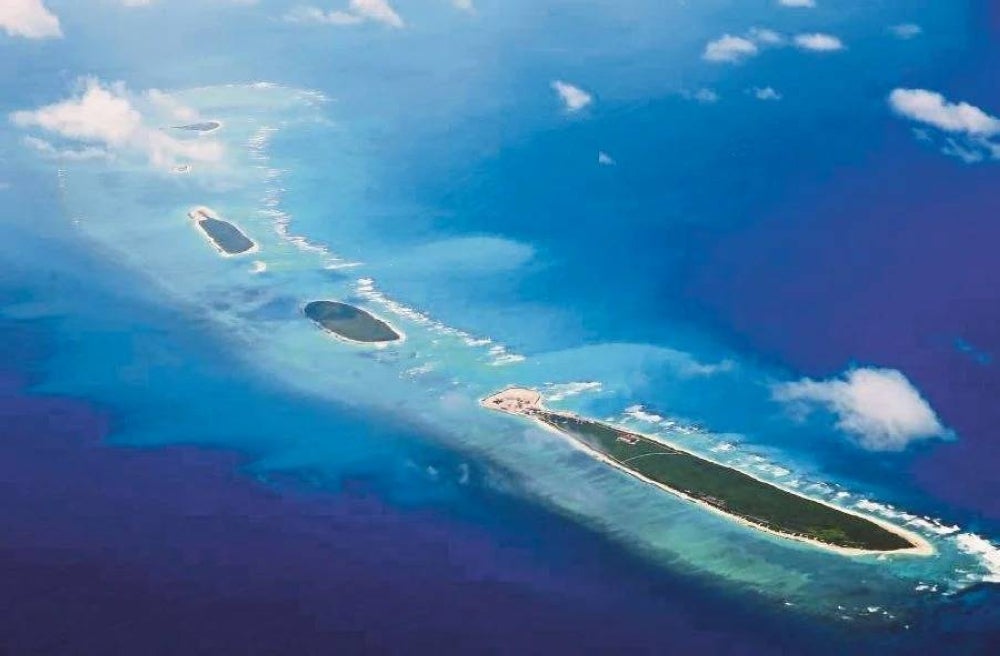Malaysia must leverage UN sea laws to protect South China Sea claims, analysts urge
SINAR DAILY REPORTERS27 Aug 2023 04:41pm

In May, the 42nd Asean Summit strongly pressed for the implementation of UNCLOS and the Asean Outlook on the Indo-Pacific.
SHAH ALAM: As Putrajaya seeks to defend its territorial integrity in the South China Sea against foreign encroachment, experts have urged the government to leverage on the United Nations Convention on the Law of the Sea (UNCLOS) to solidify its position.
This will allow Malaysia to secure its interests in the area which is vital to Malaysia, with its vast mineral, hydrocarbon deposits not only contributing to its economy but also its food and social security with the country being heavily dependent on rich fisheries for the Southeast Asian nation.
“Malaysia should emphasise its commitment to UNCLOS as the legal framework for determining maritime rights and territorial claims.
"This includes upholding the principles of international law, such as the freedom of navigation, peaceful resolution of disputes, and respect for the sovereignty and territorial integrity of states,” International Islamic University Malaysia Law Professor Yazid Zul Kepli told Sinar Daily.
He said Malaysia should assert its rights and claims in the South China Sea based on the provisions of UNCLOS. This includes its territorial waters extending up to 12 nautical miles from its coastlines, its exclusive economic zone (EEZ) up to 200 nautical miles, and potentially its extended continental shelf.
Yaz added that Malaysia must not only work with its partners within the Association of Southeast Asian Nations (Asean) grouping and beyond, it needs to embark on a its defence capacity building exercise to deter would be intruders, especially in the face of those who openly ignore international rules and norms including UNCLOS.
“Malaysia should invest in enhancing its maritime surveillance and enforcement capabilities, including the deployment of patrol vessels, installation of surveillance equipment, and strengthening its legal framework for targeted law enforcement measures within its maritime zones.
“From the refusal of China to respect the international arbitration tribunal award given to the Philippines in the South China Sea dispute, Malaysia can draw several important lessons,” he said, adding that Malaysia should maintain open lines of communication with China despite the latter’s ambitions in the area.
Also referred to as “The Law of the Sea Convention,” UNCLOS is an international convention that sets out the legal framework for the seas and the oceans by defining the rights and obligations of states parties with respect to the maritime environment.
Its main functions are to promote the peaceful use of the seas, regulate the use of marine resources and promote the conservation of living resources and the preservation of the marine environment and has been ratified by 168 parties including 164 United Nations member states, the United Nations and the European Union.
Meanwhile Universiti Kebangsaan Malaysia international law expert Associate Professor Salawati Mat Basir told Sinar Daily that China is “serious and adamant” in insisting on its own claims in the area, called the nine-dash line through which it claims almost the entire area for itself.
Not only is China disregarding UNCLOS and the rights of other countries with claims in the sea, it is attempting to solidify these claims through the construction of militarised islands which pose a grave security threat to Malaysia, Vietnam and the Philippines.
China has not only harassed Malaysian ships surveying the area for oil and gas, it has brought ships right up to Gugusan Beting Patinggi Ali (Luconia Shoals) in a bid to pressure Malaysia to abandon its claims in the area.
“Day by day, China is constructing more artificial islands in defiance of the United Nations Convention on the Law of the Sea (UNCLOS). China remains adamant in asserting that the Nine-Dash Line is legitimate and deploys a combination of militia and navy forces to guard their artificial islands and areas like Patinggi Ali.
“Malaysia has been expressing concerns about this and they have been parking their ships in Patinggi and asking us to get out. It is like parking your car in our own driveway but your neighbours are asking you to park somewhere else,” she said.
Salawati warned that this poses a grave threat to Malaysia, cutting it off resources and navigation rights while allowing China to bring its military assets right up to Malaysia’s shores and this threat must not be left unanswered.
She also urged Malaysia to look on the example of Vietnam and the Philippines, both of whom have been aggressively asserting their rights in the area despite their trade ties with China by working with other Asean partners to jointly put up a strong front.
“Asean needs to stand together instead of just being charmed by China who may be eyeing to control the nine-dash line which is rich in minerals and oil. Malaysia could strive through diplomatic resolutions, including through the code of conduct (COC).”
Despite its longstanding neutrality Asean has grown increasingly assertive.
In May, the 42nd ASEAN Summit strongly pressed for the implementation of UNCLOS and the Asean Outlook on the Indo-Pacific.
The Summit also reflected growing consensus on several issues including the early conclusion of the Code of Conduct (CoC) and full implementation of the Declaration on the Conduct of Parties in the South China Sea (DOC).
China’s aggressive action was also discussed but without the bloc naming the country.
It considered ‘the concerns about the land reclamations, and serious incidents in the area, including damage to the marine environment, which has eroded trust and confidence, increased tensions, and may undermine peace, security, and stability in the region.’
Download Sinar Daily application.Click Here!














